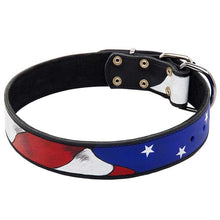11 Most Popular Questions About German Shepherd Dogs

You asked and we listened. Here is a list of the 11 most common questions we get about owning German shepherds.
If you’re thinking about getting a German shepherd, this list is a must-read. If you own a German shepherd, we’re sure you can relate to all these, plus more.
1. What is the temperament of a German shepherd?
German shepherds are confident herding dogs with strong guarding instincts. They love to work, are super loyal to their family, and can be aloof or even leery of strangers. They are naturally protective, always watchful, and nothing gets past them. Because of this, they require lots of training and socialization but they enjoy learning and love nothing more than to please their owner.

2. How much should my German shepherd weigh?
According to the American Kennel Club breed standard, a male German shepherd should weigh between 65 and 90 pounds and a female should weigh 50 to 70 pounds, at maturity. There are plenty of oversized German shepherds out there so if your dog weighs more but is not overweight, that is probably what you have.
3. How long will my German shepherd live?
German shepherds live about 10 years but their overall health and the care they receive throughout their life can help them live longer. Many German shepherds live to be 10-12 years old but according to the AKC, their lifespan is sadly only 7-10 years.

4. Will my German shepherd protect me?
Since German shepherds are herding dogs, they are protective. Bred to guard livestock, they are naturally protective, brave, and confident. Most German shepherds will defend their family but that should not be confused with aggression or dogs highly trained in personal protection or law enforcement.
5. What should I feed my German shepherd?
German shepherds are considered a large breed dog and should be raised on large breed puppy food until approximately two years to ensure they receive the right balance of calcium and phosphorus to protect their joints and bones.
They are notorious for having sensitive digestion and do best on a high-quality protein-based diet containing natural sources of glucosamine and chondroitin for joint health and
omega-6s & vitamin E for healthy skin and coat.

Some German shepherds do best on food containing probiotics that are formulated for sensitive digestion but each dog is different and there is no such thing as a one size fits all dog food.
6. How do I know if a German shepherd is right for me?
German shepherds are very loyal and form strong bonds with their owners. They are very social and need lots of exercise, companionship, and training. They are not happy when left alone all the time and need lots of human interaction.
When their physical and emotional needs are not met, they can develop serious behavior problems so if you have the time, space, and willingness to spend time with your dog each day, they make great pets.
If you are too busy to exercise them every day, are not home much, and are unwilling to spend a lot of time with them, they are not the breed for you.

7. How much do German shepherds cost?
You can expect to pay $1,000 to $1,500 for a family pet. Working or show dogs can cost as much as $3,500 to $10,000. Shelter and rescue dogs range from $100 to $500.
Always research your breeder to find out exactly what you are getting. Just because a dog has a high price tag, doesn’t ensure they have been well bred, health tested, or free of genetic problems German shepherds can be prone to.
8. What do German shepherds need?
German shepherds need an owner that is as committed to them as they will be to their owner. They also need lots of socialization, training, plenty of fresh air, lots of exercise, playtime daily, healthy food, fresh water, routine veterinary care, vaccines, preventatives, dog gear, lots of chew toys, and people to love.
9. Are German shepherds smart?
German shepherds are very intelligent, so they are easy to train. Because they are so eager to learn, they can master many commands. But since they’re so smart, they’ll also think for themselves and can easily get into mischief without supervision, training, direction, or if they’re bored.

They need lots of mental stimulation along with their exercise and love challenges and puzzle games. A busy shepherd is a happy shepherd, and you can replace them having a real job with exercise, training, playtime, going on adventures, providing plenty of interactive toys, and giving them lots of time and attention.
10. Do German shepherds shed?
If you have a problem with dog fur in the house, German shepherds are not for you. They have a thick double coat and shed year-round. Twice a year they blow their coat which means they shed tons of fur over a few days. You can help manage their shedding by brushing them weekly and vacuuming often.

11. Are German shepherds healthy?
German shepherds are strong, athletic, and very active. In general, they are very healthy dogs. However, they can be prone to allergies, orthopedic problems, and have sensitive digestion. Their genetics and breeding can play a huge role in how healthy they are. Some health problems that they can be prone to include hip and elbow dysplasia, degenerative myelopathy, Gastric dilatation and volvulus (bloat), joint and spine problems, arthritis, and pannus.
We hope you learned a lot from our answers here. If you have any more questions, we’re here to help so please drop them in the comments. As always, please feel free to share with your friends.
You may also like: The History Of The German Shepherd






















